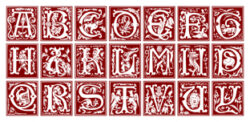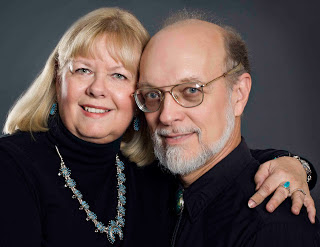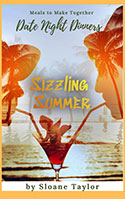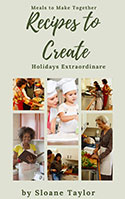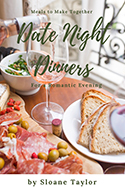A WRITER’S ALPHABET
December 28, 2020 | Author Friend Promo
from C.D. Hersh
Over the years we have learned a great deal about writing and what it takes to survive in this business. Today we would like to share those ABC’s with you.
Affirmation – As writers we get a lot of rejection. It helps if we have some affirmation. So, the next time you get a good comment from a critique partner, an editor, or even your child who says “You’re a good writer, Mommy,” tuck it away in a special file. Then when you feel like chucking the computer out the window and giving up on writing, pull out those affirmations and tell yourself, “ I can do this. I am a Writer!”
Brainstorming – Brainstorm without putting checks on your imagination. Don’t be afraid to think of the most outrageous ideas when you’re brainstorming. “What if” may be the best tool a writer has to stimulate his imagination.
Creativity – Never let anyone say you don’t have creativity. The very fact that you want to write shows you have creativity. Just keep thinking about your story, asking “What if”, and letting all your skills and thoughts take you into the world where your characters live. Eventually, you’ll find, or create, what you need.
Discipline – Every writer needs it; most of us do not have it. The discipline to sit down in front of the computer every day, even when you don’t feel like it, will get you through the rough parts of your stories.
Edit – ISSAC B. SINGER said, “The wastepaper basket is the writer’s best friend.”
Think of yourself as a writer first and an editor second. Write, rewrite and rewrite some more. Never, ever, send that first draft to an editor.
Fodder – Everything you see and hear and everyone you meet is fodder for a writer. Writers have great excuses for eavesdropping on the world. Ideas, character sketches, names, plot twists¾you name it and you can find inspiration for it among your family, friends and the guy sitting next to you in McDonalds. Don’t let them know what you’re up to, however. If they recognize themselves in your next story they may never speak again when you’re around.
Grammar – Webster defines grammar as “a study of what is to be preferred and what is to be avoided in inflection and in syntax.” When you present your manuscript make sure the grammar is correct. Don’t depend solely on your computer grammar check; its suggestions are not always right. Instead, invest in a good English or grammar handbook and use it. The Associated Press Stylebook and Libel Manual has a nice section on grammar and punctuation that I use all the time. If you have trouble with grammar find a friend or an adult enrichment class that can help you brush up on your grammar. You don’t have to be able to diagram a sentence, but you do have to be able to put it together correctly. That goes for punctuation too.
Hope – Hope should spring eternal in the hearts of writers. As long as you have something circulating among editors you should always have hope. Never give up, not even when you have enough rejection letters to wallpaper your office.
Ideas – There are no bad ideas. Even the worst idea can provide a springboard for something better. Keep all your ideas in a file so you can pull them out whenever you have a dry spell. You’ll be surprised what new, and better, ideas might spring from an idea you considered trashing.
Journaling – Journaling is a great way to keep your writing flowing, especially on those days when you can’t, or don’t, get to the computer. Write at night, in the morning, in the bathroom, or any place where you and your journal can go. Put down your emotions, your thoughts, impressions, snatches of conversations, or visual images. All these things can be story sparkers or sensory descriptions you might be able to use in some other writing.
Know How – Like every profession, writing is a job that takes skill. You can’t be an electrician or a plumber without learning the ropes¾the skills and the tricks of the trade. That’s true in writing too. To become a success as a writer you have to study your craft, learn the best way to write an article, a scene, a chapter, a book. You have to know how to structure your plots and characters, and you have to become knowledgeable about the business. Learn all you can about writing and the writing business so you can succeed.
Laughter – Keep a sense of humor about yourself and your writing. There will be plenty of times that you will get your feelings hurt as a writer¾someone won’t like your baby, a critique will rub you the wrong way, an editor might ask for umpteen revisions. If you can face life, and writing, with humor you’ll be able to get through most anything¾and even have some good story material in the process.
Marketing – If you want to sell, then know your market. Don’t waste your time, and an editor’s time, by sending manuscripts that aren’t suitable for the publication.
Networking – Do it! Network with anyone in the writing business that you can. Editors are besieged with unsolicited manuscripts. Any time they can connect a face, organization, or conference to you, you are one step ahead of the game. Take every opportunity to meet, talk with and mingle with editors. Don’t forget networking with other writers too. You can’t know all there is to know about the publishing world and what is going on. Take advantage of any information other writers have to offer. Getting published is not always about talent. Sometimes it’s also about being in the right place, or submitting to the right place at the right time.
Organization – If you can’t find the computer, your copious notes, or the paper and pencil under the clutter in your office, then you can’t write. The more organized you are the less time you’ll spend hunting and the more time you’ll have for writing.
Perspiration – Don’t wait for the Muse. Writing is one-percent inspiration and 99-percent perspiration. If you wait for inspiration, you might as well be taking a nap while you’re sitting in front of you computer.
Query Letter – Queries can be more intimidating and frustrating than writing the whole darn book. I know plenty of writers who dread the “Query Letter.” The query is an editor’s first glimpse of you and your story. Consider it an important, but necessary, evil of your craft, and learn to conquer it. The Writer’s Market has great examples of how to write a good query.
Reading – “A room without books is like a body without a soul.” Cicero
A writer who doesn’t read will soon find himself out of touch with the very world for which he is writing. Read, read, and read everything that you can. Fiction, non-fiction, newspapers, magazines, cookbooks, cereal boxes, dictionaries, children’s literature, and certainly read in whatever genre in which you want to write.
Solitude – The life of a writer is a solitary one. “Family, friends, and society are the natural enemies of a writer. He must be alone, uninterrupted and slightly savage if he is to sustain and complete an undertaking.” LAWRENCE CLARK POWELL Learn when, and how, to shut the door and lock out the world. Find the time and the place that works best for you.
Tenacity – “A professional writer is an amateur who didn’t quit.” RICHARD BACH
Dr. Seuss had his first book rejected 64 times and was ready to toss it in the trash. A friend convinced him to try just one more publisher¾the rest is history. Seuss could have remained an amateur if he had given up. Don’t give up. You might miss your chance at a bestseller.
Universality – Want to sell? Then make sure your stories and articles have a universal appeal. There is nothing new under the sun, just a different way to tell it. Stories with universal appeal never go out of style.
Virgin Reader – Every writer needs one of these. We get so close to our “babies” that we can’t see their flaws. But, believe me, an editor will. So, find someone you trust to give you fair, constructive criticism¾someone with a fresh set of eyes to look at your writing¾and let them be a Virgin.
Write – “Planning to write is not writing. Outlining a book is not writing. Researching is not writing. Talking to people about what you’re doing, none of that is writing. Writing is writing.” E. L. DOCTROW
‘Nuff said.
Xercise – (Yes, I know it’s not spelled that way) Writing takes a lot of mental power but doesn’t exercise the other body muscle groups (except the fingers). So, to keep yourself healthy¾and maybe even sneak in some writer avoidance time – take time to exercise. You’ll come back to the keyboard refreshed and awake. A bonus – getting the endorphins revved can even kick your brain into gear and help you solve whatever writing problem you’ve been facing.
Ying and Yang—A writer needs balance, in his life and on the page. Too much time alone with the book isn’t a good thing. Neither are pages of narrative or back story with no dialogue or action. Find that happy medium in your life and your literary pursuits.
Zeal – “Writing is a dog’s life, but the only life worth living.” GUSTAVE FLAUBERT
If a writer’s “dog’s life” isn’t what you want, then you had just as well close your notebook, break your pencil in half, and find something else to do with your life. Zeal, passion and a love of your work will keep your writing fresh and alive. If you don’t like what you are doing you probably will not succeed at it.
Please allow us to introduce you to our paranormal suspense series The Turning Stone Chronicles.
 The Promised One (The Turning Stone Chronicles Book 1)
The Promised One (The Turning Stone Chronicles Book 1)
 Blood Brothers (The Turning Stone Chronicles Book 2)
Blood Brothers (The Turning Stone Chronicles Book 2)
Son of the Moonless Night (The Turning Stone Chronicles Book 3)

The Mercenary and the Shifters (The Turning Stone Chronicles Book 4)

C.D. Hersh–Two hearts creating everlasting love stories.
Putting words and stories on paper is second nature to co-authors C.D. Hersh. They’ve written separately since they were teenagers and discovered their unique, collaborative abilities in the mid-90s. As high school sweethearts and husband and wife, Catherine and Donald believe in true love and happily ever after.
They have a short Christmas story, Kissing Santa, in a Christmas anthology titled Sizzle in the Snow: Soul Mate Christmas Collection, with seven other authors.
They are looking forward to many years of co-authoring and book sales, and a lifetime of happily-ever-after endings on the page and in real life.
